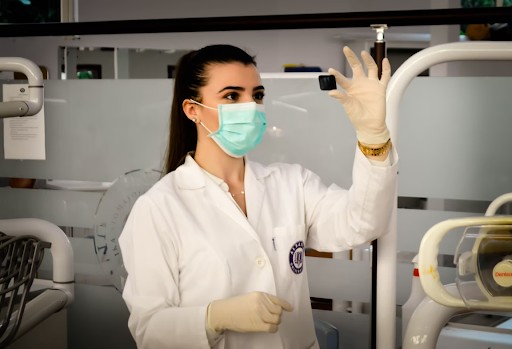Top Course Ideas All Nurses Should Consider In the Upcoming Year
The COVID-19 outbreak has highlighted the significance of continuing to provide high-quality healthcare. Nursing is one of the most significant areas of medicine. Nursing professionals work in hospitals, outpatient clinics, and doctors’ offices to organize and administer patient care. Nursing is a secure, financially rewarding, and in-demand career. As a result, being a nurse necessitates a large investment in schooling. Continue reading to learn more about the courses that are necessary for nursing degrees.

Table of Contents
Biochemistry
Students study the processes that occur in many living species, as well as the function and structure of live cells, in biochemistry. Nurses must understand how the human body works in order to detect and treat disorders such as fevers, heart attacks, injuries, and infections in their patients. The best part is that you can now take many such courses online through a variety of sites. To that end, you might check out edwize.org/kajabi-vs-teachable to compare and contrast Kajabi and Teachable, two e-Learning systems that allow users to develop and sell courses online. Basic biochemistry knowledge also aids nurses in determining which drugs to provide and how they influence bacteria and body systems. A mandatory lab component is frequently included in this course.
Physiology
The study of the human body and how it operates is known as physiology. You’ll learn about the names and functions of several bodily parts, as well as how they all work together in a healthy individual and during various diseases and accidents. Because many following courses rely on your grasp of how the body functions, this is frequently one of the first mandatory classes.
Physiology also guarantees that you and other care providers use the same vocabulary to explain the body and how it works, so learning it will help you communicate and write medical notes more effectively. As a result, it is an essential component of patient safety and favorable health outcomes.
Clinical Theory
Nursing is a practice-oriented vocation that necessitates clinical competency. Many states require applicants to complete roughly 400 hours of clinical practice before they may obtain their RN licensure. As a result, many nursing schools include a practicum or experience as a requirement.
This course gives students the information and concepts they’ll need to succeed in clinical assignments. Research, ethical standards, communication, and healthcare policy may all be covered in class.
Mental Health
Successful nursing requires an understanding of and support for mental health. A study of essential ideas and concepts in fields such as psychopharmacology and psychopathology is included in this course. Other subjects might include the underlying behavioral, biological, and cultural elements that can contribute to mental illness
Nurses-to-be learns how to help patients with mental illnesses. They also learn how to analyze, assess, and treat patients with diseases in collaboration with other healthcare experts.
Pharmacology
To give their patients the proper drugs, nurses must understand pharmacology. Drug interactions, side effects of particular medications, pharmacodynamics, and how age, lifestyle, and other individual characteristics impact patient response may all be covered in this course. Case studies are frequently used in the course to encourage learners to demonstrate critical thinking to drug selection in nursing contexts.

Gerontology
The study of aging is known as gerontology. Conditions related to aging, the psychology of aging, how to successfully communicate with older persons, and end-of-life considerations for nursing are all subjects covered in RN gerontology training. Because nurses play such a significant role in providing care to aging patients, gerontology is incorporated in nursing major coursework. Most nursing students study it because it is a specialist course.
Nursing Skills Development
Nursing is a highly technical profession, which necessitates having the necessary practical skills and knowledge to assist patients in need. This RN course will concentrate on developing your abilities and ensuring that you comprehend the fundamental ideas of patient care. Special attention is paid to the development of communication skills, physical and psychological evaluations, and particular nursing intervention abilities.
Microbiology
For prospective nurses, microbiology is an essential RN subject since it covers the science underlying many human disorders. Students learn about the function of microbial and parasitic organisms in disease and health, as well as how they impact the body’s numerous systems. Students studying nursing learn about viruses, bacteria, fungi, protozoans, and pathogenic agents, as well as how they operate, develop, and spread. Clinical and laboratory encounters in the classroom are common in microbiology courses.
Nursing Ethics
Because of the numerous complex ethical dilemmas that nurses confront, no matter where they practice, ethics in nursing is a required course. Professional behavior, health justice, equality and diversity, and acceptable reactions to unethical behavior are all themes covered in RN ethics classes. Ethics classes, like leadership programs, incorporate theory and application, so be prepared to critically assess ethical dilemmas.
If you want to be an RN, you should enroll in a career-focused nursing school. A recognized, career-oriented school will stress the value of clinical experience and ensure that you graduate with the necessary abilities.

